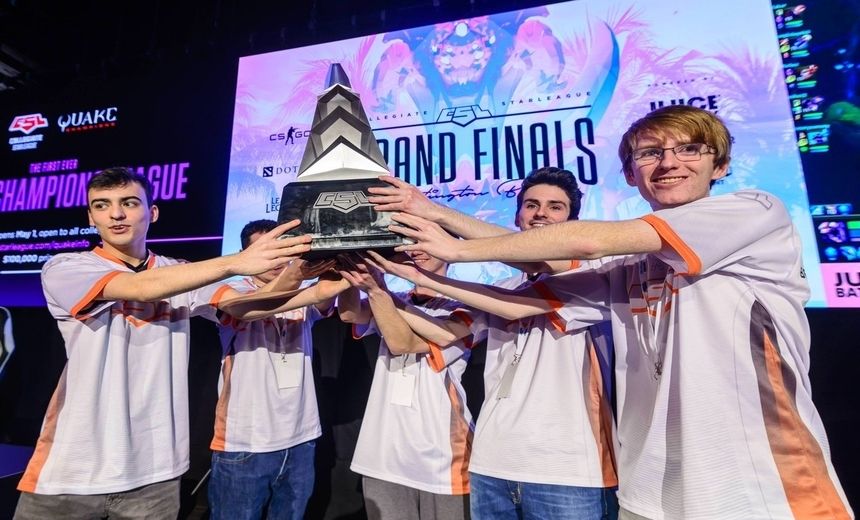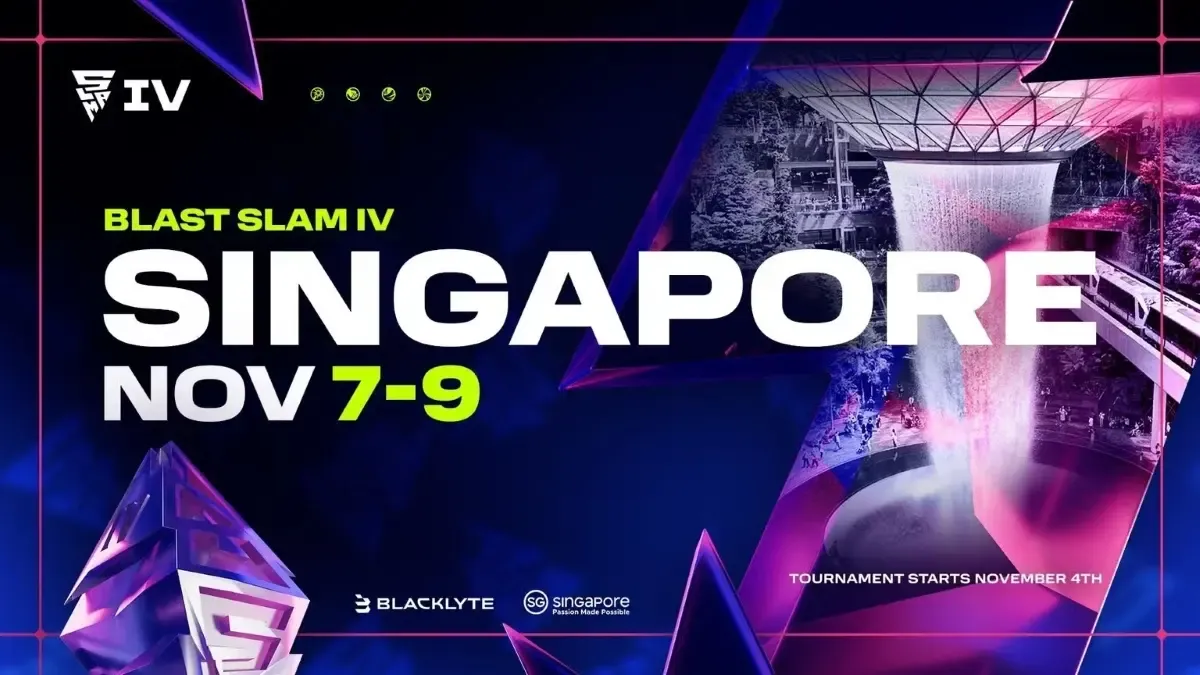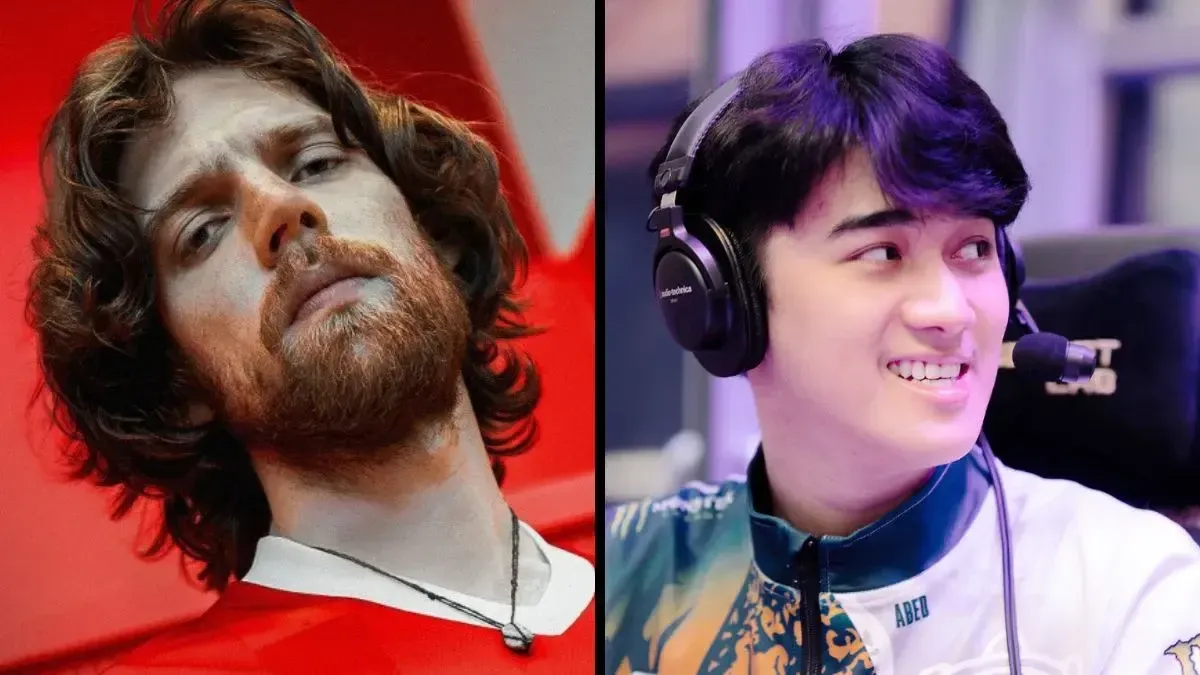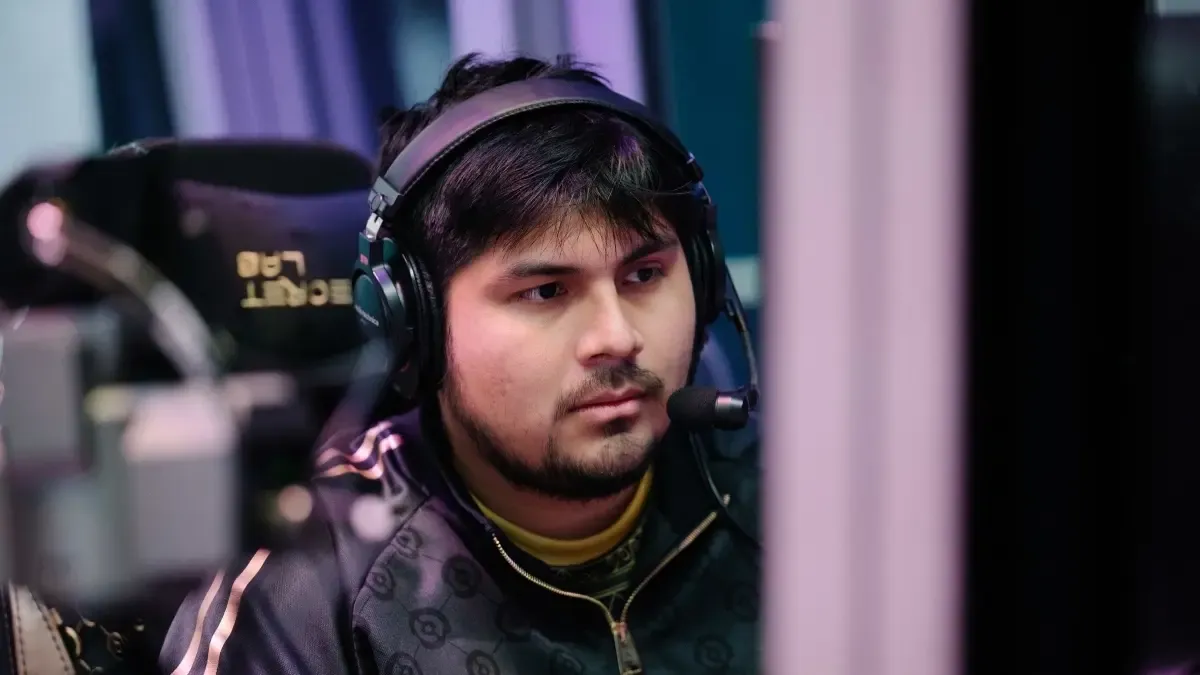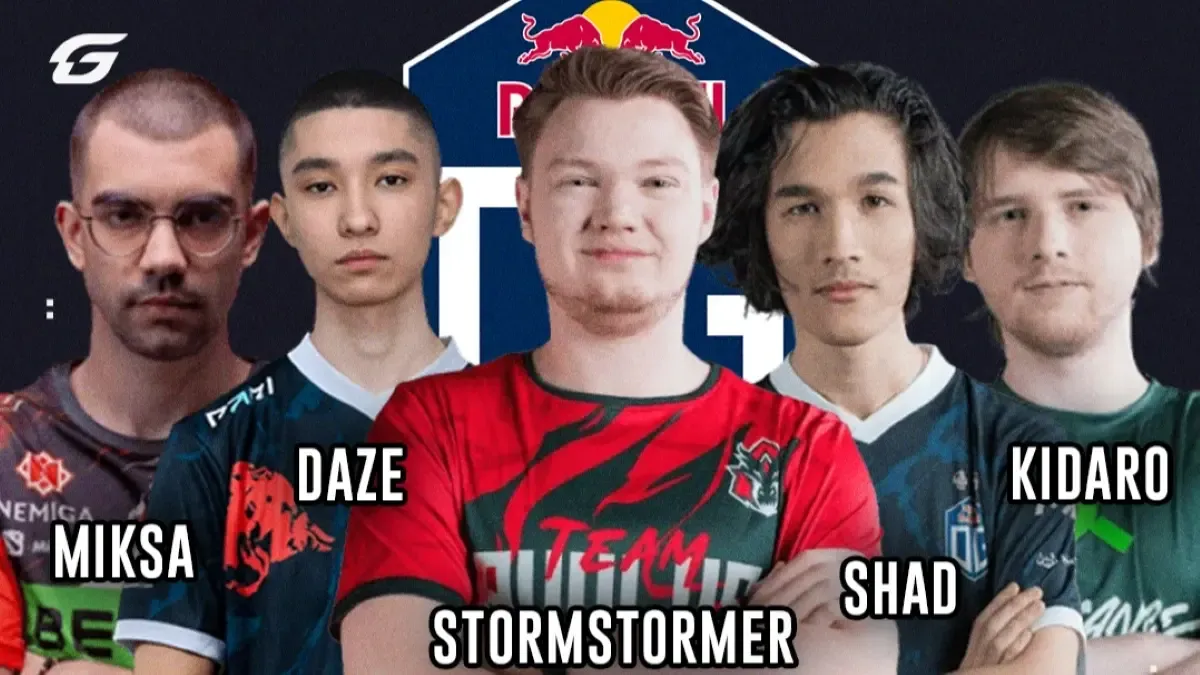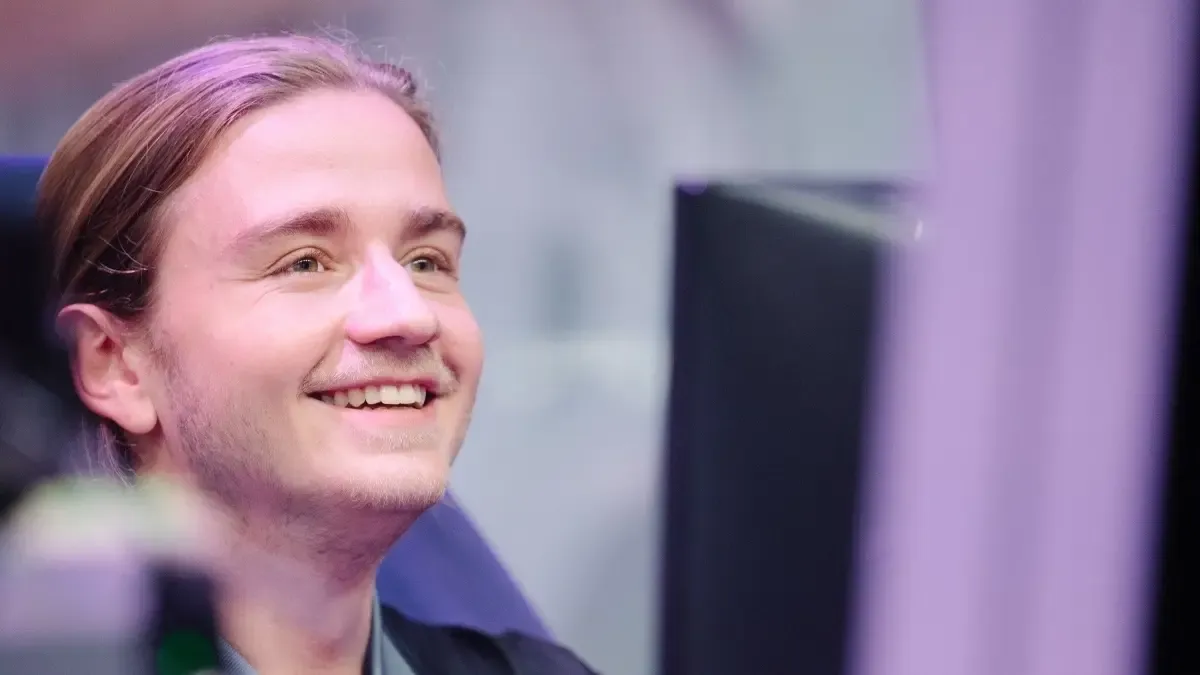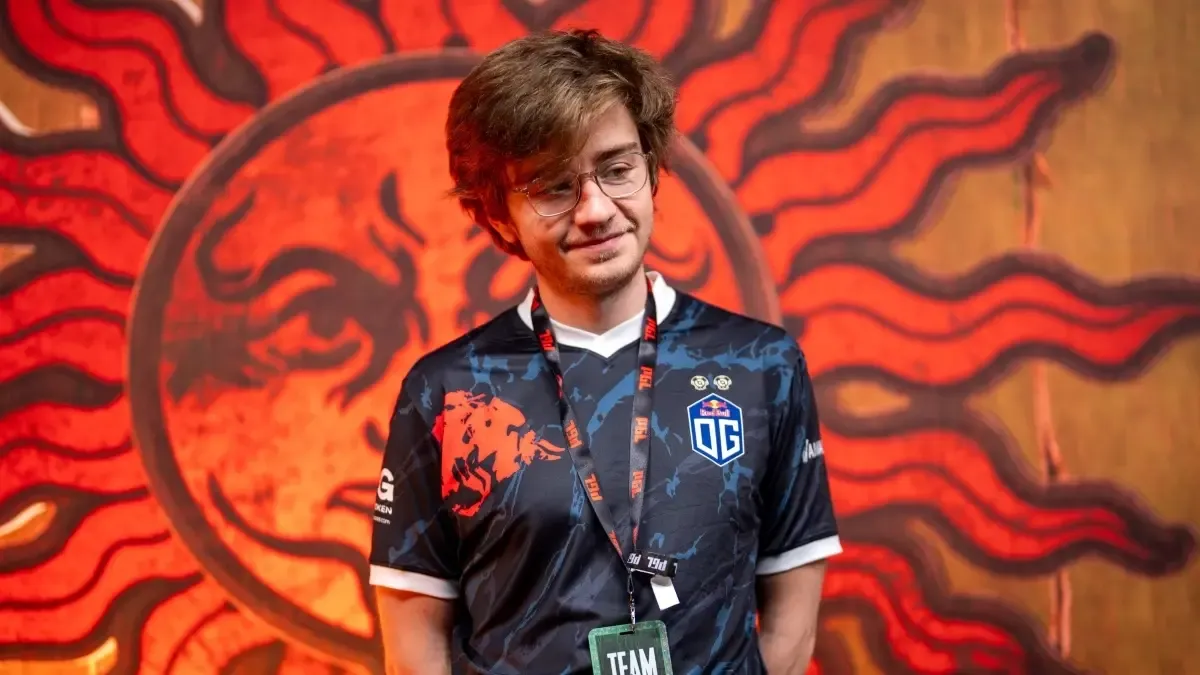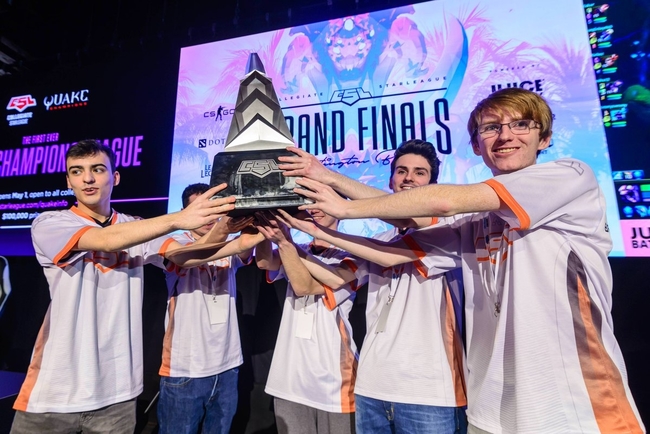
Photo courtesy of CSL
Interview: RIT team manager Sam ‘Sizzle’ Belisle joins us to discuss the team’s victory as well as providing insight into where collegiate DOTA 2 currently stands and in what direction it is headed.
RIT is a team which has developed a winning strategy heading into this season’s league play. They placed second at American Video Game League (AVGL) which bolstered their resolve and motivated them to a Collegiate Starleague (CSL) championship. Not a bad feat for a program that is only a year old. What is more impressive is to attain this while utilizing a stand-in because of conflicts with the semester finals schedule.
Not much is known about collegiate DOTA 2 due to its infancy. For those less informed with the event, CSL hosts a Division 1 and Division 2 tournament. The Division 1 tournament consists of the most competitive schools and boasts a $30,000 prize pool. Of course, this pales in comparison to the illustrious DOTA Pro Circuit (DPC) prize pools but even professional DOTA had similar beginnings.
Currently, the major driving force for the players is the love of competition and the game. A significant amount of it is required to shuffle around their academic responsibilities while scrimmaging, practicing and preparing. Classes and DOTA 2 together leave little to no time for other activities. At the end of the day, what the RIT program is fighting for is recognition from their administration. Sam ‘Sizzle’ Belisle hopes that their stint of success will accomplish this and translate that recognition into additional funding to build upon their achievements.
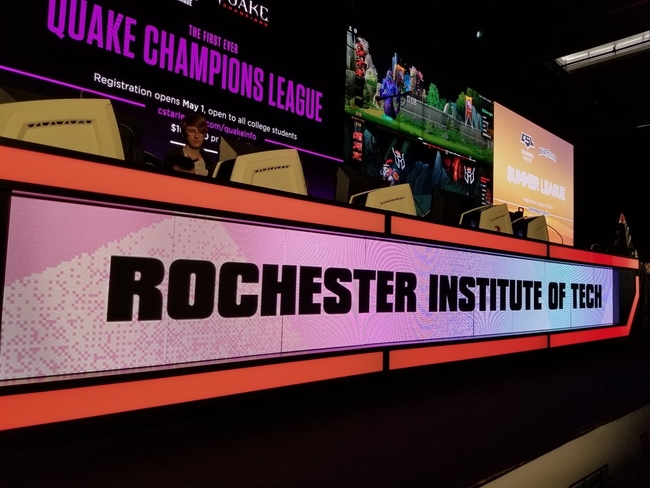
Photo courtesy of CSL
We wish RIT esports the best of luck in their endeavor of building a first-class esports program. We would also like to extend each player an enormous congratulation for not only their championship but doing so while juggling around the academic responsibilities involved with the investment in their future. A special thanks to Sam 'Sizzle' Belisle and RIT players for participating in the interview.
No one will speak as intelligently about RIT’s mindset after reaching the pinnacle of collegiate DOTA as the team. Let’s get to the interview. The final portions offer an inside perspective into the future of collegiate DOTA and whether it will be a viable option in providing young, aspiring DOTA professionals a competitive stepping stone towards the DPC.
Heading into Collegiate Star League (CSL) LAN, how significant of a motivator was placing runner-up at American Video Game League (AVGL)?
It was pretty big, mostly because heading into the AVGL finals the team had barely lost any games between both CSL and AVGL. It placed us in a spotlight, with a large target on our backs as THE team to beat. Then, of course, UBC crushed us 3-0. At first it was pretty demoralizing, but we knew that we had a second chance to redeem ourselves at the CSL LAN. It was probably the biggest motivator going into that event because we knew that we were going to be the best team there, we just had to prove it.
How did it feel for the team to win the CSL grand finals in front of a live audience and experience all the benefits the event had to offer?
From Benjamin Morgan, AKA Zanthous "It was a big relief for me that we won, being a stand-in when we are expected to win means a lot of people were watching me in particular. The final match was a lot easier than our previous because of how the seeding worked out, but we were all glad we could finish out the tournament and bring home the first-place finish."
What would be an estimate of the average MMR of those on your roster? In relation to the DOTA Pro Circuit (DPC), how would your players describe the skill gap?
The average MMR of our team is around 6k, with a couple 5k's and a 7k player. The lowest medal is a Divine 3, the rest are Divine 5.
From Benjamin Morgan, AKA Zanthous "Firstly, there is still a massive skill difference, college teams have some standout players, but every pro team needs 5 standout players to stand a chance. Pro teams are filled with players that dedicate their lives to the games, whereas college students need to balance their school work alongside practicing the game. Pro teams are able to scrim daily for many hours, whereas it can be hard to schedule scrims around everyone’s schoolwork and classes."
What do you envision as the future of collegiate esports in terms of joining more traditional sports involved in an athletic program? (scholarships, funding, etc.)
It's going to be a hard path for Esports, and we're learning that first-hand here at RIT. Our Esports program is still very new, only a year or so old, but it's already clear to us that getting proper recognition from not just the student body, but also the administration is exceptionally hard. You need teams of dedicated people, who at this level are typically students, to build the brand, to get the word out and most importantly to have success. The most important thing in this early stage of Esports at a collegiate level is having a successful program because it makes people take notice. In our case, it makes the administration recognize us, become interested in us, and hopefully provide us with the funding we need to continue to be successful. This can, in turn, lead to things like scholarships, which are one of the most important things for building a truly great team. However, for most colleges, it's a LONG, LONG road to something like that, and we've just barely started to inch our way there. Another important thing at this point for collegiate Esports is to have dedicated players, and the ability to provide them with the coverage they deserve, in order to build their brand and garner interest in the teams.
Would you say RIT has been vocal in their recognition of your recent accomplishments?
Absolutely, we've had a couple groups within RIT reach out for interviews and news stories about our team, and our accomplishments. The LAN victory was the first major Esports championship for RIT, and it's definitely going to help the RIT Esports organization take a step up. The hope is that it was enough to get the administration interested, but we'll have to wait and see.
A lot of people discuss platforms that can provide training and a potential stepping stone to the DPC. Do you believe collegiate esports may evolve to be a viable accommodation for younger players seeking a future professional career as they acquire an education?
I think there needs to be some major changes to both the DPC and collegiate level for that type of system to work, but it's possible. The main problem is that if there is someone who is good enough to go pro around college age, it's likely they wouldn't bother wasting their time in college, and would just immediately go pro. Given the shaky nature of most Esports scenes, and how short-lived most careers in it are, there is little incentive for those types of people to waste time in school when they could make the effort to go pro, and just come back to school later if it doesn't work out. With the current system, the things they have to gain greatly outweigh what they have to lose.
Do you have any shout outs to those that have helped get the team to where they are today?
I'd like to shoutout Jazib Rao, AKA Ritz, who got the team all the way to the CSL LAN, and was unable to go due to finals. Awesome player, great guy, hopefully, he can come back next semester. He was our offlaner, and Zanthous stood in for him at the LAN.

